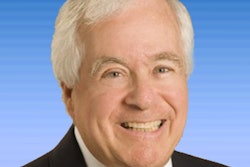
In our last article on the topic, we mentioned the eye-opening fact that there are now almost 1,000 dental service organizations (DSOs; groups ranging in size from five to more than 900 locations). Those DSOs account for approximately 20% of the practices in the U.S.
Next in the article, we focused on what dentists think of DSOs. Now it's time to list some very interesting results of surveys and conversations that Connect the Dents has had with DSOs about what they are doing and what they know about dental practices.
Again, DSOs come in all shapes, sizes, and models. While they can be categorized by several accepted methods, one common way to do so is via stage and size.
Generally speaking, the four levels used are: startups, emerging, midmarket, and elite DSOs. We decided to obtain information (through surveys and conversations) and study the habits of a number of DSOs within the emerging and midmarket group, as they are generally experiencing solid growth and can therefore provide some strong insights.
We spoke with top executives and/or business development directors with 52 DSOs within the emerging and midmarket categories. We asked them this question: "What are the three biggest challenges (in order) your DSO is currently facing?"
The top seven responses (in order of number of mentions) are listed below:
- Recruiting and retention (of clinicians/providers): Why should dentists and registered dental hygienists (RDHs) choose to work for them? Many factors are involved here, including compensation (and possibly debt consolidation), technologies, procedures and services offered, CE programs, overall patient care and philosophy (quality over quantity), and more.
- Practice acquisitions: Organizations now face fierce competition in finding opportunities to add affiliates. More specifically, expanding into a new state for a DSO usually means (for several reasons) identifying a platform to do so (whether that is a large single practice or small group). Once a practice becomes available, it is not unusual to have up to a dozen DSOs looking to analyze and potentially make an offer to buy the practice.
- Patient acquisition and retention: DSOs are finding it necessary to spend more marketing dollars than ever before (traditional and online/social media) in order to continue to grow practices steadily and meet projections.
- Handling the growth of the DSO: Some may argue this is indeed a good problem to have!
- Handling/reducing overhead: Wages and the cost of keeping up with technologies (to operate the DSO centrally as a whole as well as what is needed in each affiliated site) are just two of the areas of focus mentioned. Additionally, there is the constant and ongoing need to negotiate good deals with manufacturers/dealers/labs for supplies, equipment, and services (i.e., establishing formularies).
- Patient treatment plan acceptance: It turns out this is one area of concern that DSOs share with private, independent practices (which have, for the last 20-plus years, listed treatment acceptance as either their biggest or second-biggest challenge in our surveys with the Dental Sales Academy).
- Legal costs: Regulations differ from state to state, plus each acquisition or deal requires its fair amount of time, effort, and cost associated with contracts and purchase agreements.
In summary, as shown in the top three results listed above, it is becoming a necessity for DSOs to become more specific in how they differentiate themselves. In the past, pushing out marketing messages such as "we are doctor-centric," "the doctors have clinical autonomy," "we offer high-quality patient care" and "our culture is what defines us" was somewhat enough to get and grow business. In fact, the majority of DSO websites and literature are still using a variation of one or more of those statements.
Now, however, while more than 50% of graduating dentists will go to work for a DSO, dentists and RDHs have more choices than ever. The same also holds true for those who are looking to sell their practices to DSOs. Additionally, patients have more choices, especially when looking for specific procedures or programs, such as implants, sleep apnea, or clear aligners.
In summary, DSOs are making a conscious effort in working harder to communicate concisely as to the unique aspects of who they are and what they offer so that they can recruit and retain more effectively across the board.
Anthony Stefanou, DMD, CBI, is a dentist of 32 years (nonpracticing) and a certified business intermediary. He is the managing partner and founder of Connect the Dents, a dental mergers and acquisitions and business development advisory company working with manufacturers, dealers, DSOs/practices, and the Dental Sales Academy. He can be reached at [email protected].
The comments and observations expressed herein do not necessarily reflect the opinions of DrBicuspid.com, nor should they be construed as an endorsement or admonishment of any particular idea, vendor, or organization.



















